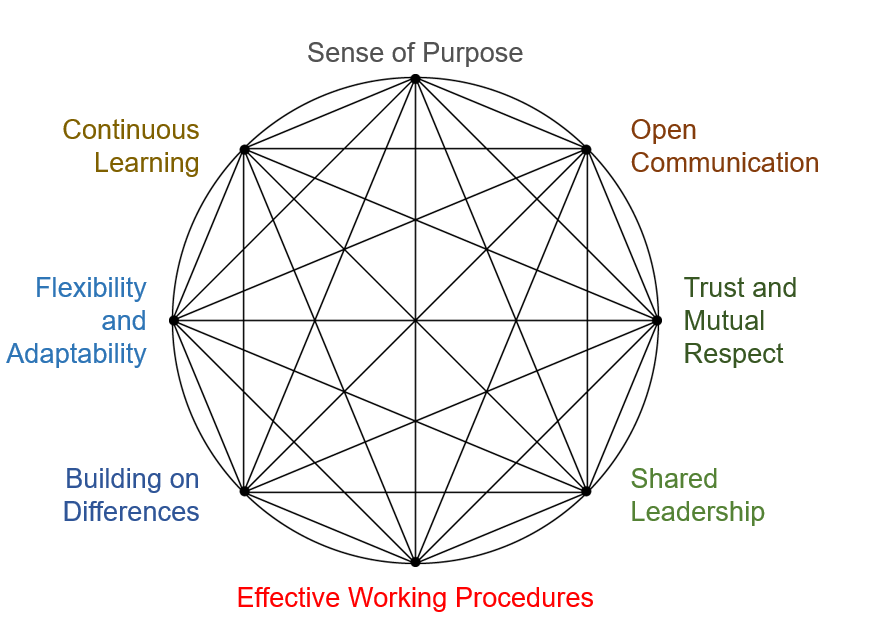|
A Sense of Purpose
|
- Common and shared vision, goals and objectives
- Strong focus on results, sense of priorities, clarity about decisions
- All team members share and support a common vision that the team is working to achieve
- Team members are highly focused on objectives
- Plan and set directions
- Action steps to reach goals
- Clarity of what is expected of everyone
|
|
Continuous Learning
|
- Team members encourage difficult and penetrating questions
- Learn from their experiences and mistakes
- Encourage the growth and development of other team members
- Group participation
- Opportunity for input
- See mistakes as learning opportunities
|
|
Open Communication
|
- People express their thoughts and feelings
- Conflict is surfaced and resolved
- People listen attentively
- The team makes extraordinary efforts to make certain everyone understands the plan and progress toward the plan
- Open and honest
- Pertinent information from top to bottom
- Effective communication
- Accept conflicts and work them through
|
|
Trust and Mutual Respect
|
- People value and support others
- They tell each other the truth and provide honest and caring feedback
- High-performance teams take the time to celebrate small victories toward goal achievement
- Team members work to build each other up and avoid zinging one another
- High-performance teams care deeply about each other’s the development and personal growth
- Personal needs and human relationships are cared for
- Free expression of feelings
- Feelings are understood and supported
- Share perception on each other’s behaviour and performance
|
|
Effective Working Procedures
|
- The team knows how to gather organize and evaluate information
- People encourage creativity
- Innovation and risk-taking
- People plan appropriately
- The team operates under specific deadlines for achieving results
- The team stops at appropriate times to check the quality of its recent work for the purpose of determining how the process could be improved and what learning can be shared with other members
- The team is well structured
- Tasks are organized effectively
- Processes are effective
|
|
Building on Differences
|
- The team optimizes the skills, knowledge and personal strengths of its members
- People seek out different points of view and make use of outsiders
- Team members work to make certain that every member of the team is involved.
- Watchers and Wonderers are employed in progress toward the vision
|
|
Flexibility and Adaptability
|
- People see changes as opportunities
- People share responsibilities and look for continuous improvement
- The work of the team is beyond the team’s zone of comfort
- It does not know how it is going to achieve the result desired
- High spirit in the team
- Excitement
- Pleased and happy with the job/team
- Morale is high
|
|
Shared Leadership
|
- Different team members assume leadership depending on the task at hand and the need of the group
- The formal leader serves as a coach and mentor to the team
- Team leadership changes according to the expertise required
- Individual members jump into the breech as weaknesses or gaps are discovered
|
